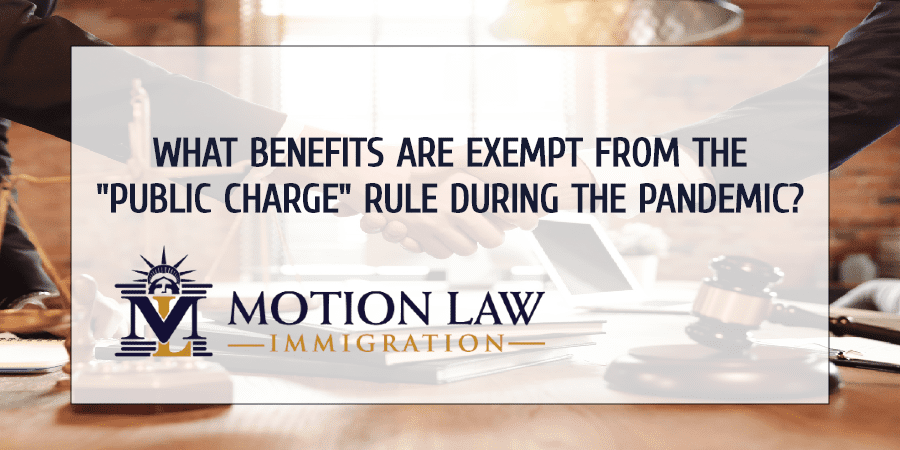What Benefits are Exempt from the “Public Charge” Rule During the Pandemic?

USCIS Softens “Public Charge” Rule Measures During Pandemic
The US Citizenship and Immigration Service (USCIS) decided to ease certain parameters of the “Public Charge” rule during the Coronavirus health crisis.
The “Public Charge” rule – Brief Explanation
The USCIS officially implemented the latest version of the “Public Charge” rule on February 24, 2020. All States, including Illinois, must follow the guidelines of this rule.
This rule restricts an immigrant from obtaining legal residence if he/she has been or could potentially become a “public charge” for the US.
Let’s look at some of the rule’s parameters:
- If an immigrant does not have stable financial solvency or a legal sponsor to cover all the expenses necessary to live in the country, USCIS would probably reject the petition using the “Public Charge” rule.
- If an immigrant wants to use free medical or social benefits offered by the US government, the “Public Charge” rule would apply for this scenario.
- If an immigrant residing in the US is applying for permanent residence and has used public benefits for 12 or more consecutive months, the petition will be denied.
- If an immigrant uses public benefits such as: food stamps, local government monetary aid, or free medical services, his/her request could be denied under the “Public Charge” rule.
- A residency application could be rejected if an immigrant does not pay the mandatory annual taxes.
There are some scenarios where the rule does not apply, for instance, to asylum and refuge applications.
Is you need more information on the “Public Charge” rule for your immigration case, please click here to contact Motion Law Immigration.
The “Public Charge” rule amid the pandemic
Due to the health crisis caused by the Coronavirus, USCIS decided to ease the standards of the “Public Charge” rule while the risk to public health decreases in the country.
Some of the scenarios where the “Public Charge” rule does not currently apply are:
- Receiving unemployment insurance during the health crisis does not apply for this rule.
- People currently residing in the US have the right to request a COVID-19 test and it is not considered a “Public Charge”.
- If an immigrant must be hospitalized during the pandemic, this will not affect “Public Charge” records.
- If an immigrant lost his/her job due to COVID-19 and is unemployed for a considerable period of time, he/she will not be inadmissible in the US for “Public Charge”.
The reason USCIS decided to be more flexible with this rule is because immigrants should use the public benefits offered during the pandemic to prevent them from being carriers of the virus and to avoid a possible massive spread among immigrant communities.
In addition to that, immigrants are mostly the workforce of the US and are in constant contact with other people, which increases the risk of contagion.
Find reliable help for your immigration case
If you have any questions about an immigration issue or relating to a case you may have currently in progress, then please don’t hesitate to contact us for a FREE Phone Consultation with one of our expert immigration attorneys.
Simply call Motion Law today at: (202) 918-1799.